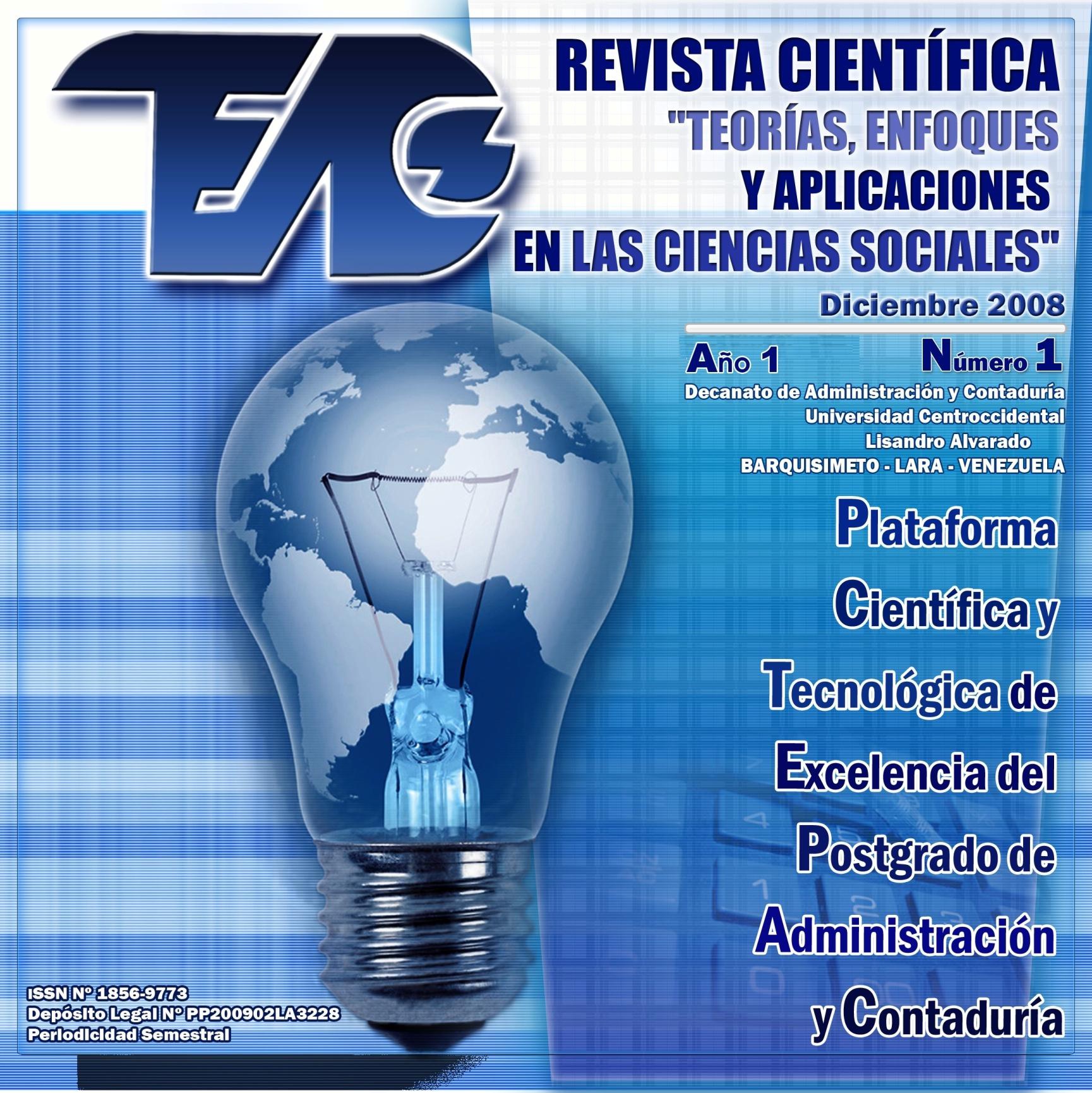Human resource management working relationship in the XXI century
Keywords:
knowledge, equipment, jobs, process, intellectualAbstract
The purpose of this study is to analyze the human resource management as it is one of the areas most affected by the changes occurring in the modern world and to relate the new production model for the twenty-first century. It is a documental research. This was an evaluation of these eras in the twentieth century characterized by three distinct eras. The classical era of industrialization, which imposed a hierarchical, functional, where the specialization of the workers was the most important. Followed by the neoclassical era of industrialization characterized by a double hybrid design matrix organizational structure. It was the twenty-first century information age, organizations are moving towards globalization, people, knowledge, technology and results. The changes are predominantly violent and the importance of human and intellectual capital. Comes a new production model which emphasizes the self-directed work teams, it looks for repetitive tasks are performed by each worker machines and represent a source of value creation and strategic business unit. This is the initiative and motivate employee behavior, far more qualified. It has a humanization of the process, since each worker controls his own work because it has the necessary skills to do so. All workers are subject, and not at a voltage of productivity, but a creative tension.
Downloads
References
Bateman T, y S Snell (2001). Administración una ventaja competitiva. Editorial Mc. Graw Hill. México.
Chiavenato I (2002a). Gestión del talento humano. Editorial Mc. Graw Hill. Bogotá, Colombia.
Chiavenato I (2002b). Administración en los nuevos tiempos. Editorial Mc. Graw Hill. Bogotá, Colombia.
Coriat B (2000). Pensar al revés trabajo y organización en la empresa japonesa. Editorial siglo XXI. México.
Drucker P (1998).Gerencia para el futuro. Editorial Norma. Bogotá , Colombia. Hesselbein F., Goldsmith M., Beckhard, R. (1998).La organización del futuro. Ediciones Granica. Barcelona, España.
Humphrey J. (1995). Nuevas temáticas en sociología del trabajo. Revista latinoamericana de estudios del trabajo. Editorial ALAST. Año 1 Nº 1 Buenos Aires, p. 43-72.
Koontz, H. & Weinrich H. (1998). Administración. Editorial Mc. Graw Hill. México.
Sastre M y Aguilar E. (2003). Dirección de recursos humanos un enfoque estratégico. Editorial Mc. Graw Hill. España.
Stephen, R (1998). La administración en el mundo de hoy. Editorial Prentice Hall. México.
Stephen, R (1999). Comportamiento organizacional. Editorial Prentice Hall. México.
Valdes L (2002). La revolución empresarial del siglo XXI. Editorial Norma. Bogotá, Colombia.
Published
How to Cite
Issue
Section

This work is licensed under a Creative Commons Attribution-NonCommercial-ShareAlike 4.0 International License.
Derechos del/de autor/es a partir del año de publicación
Esta obra está bajo la licencia:
Creative Commons Reconocimiento-NoComercial-CompartirIgual 4.0 Internacional (CC BY-NC-SA 4.0)
Las opiniones expresadas por los autores no necesariamente reflejan la postura del editor de la publicación ni de la UCLA. Se autoriza la reproducción total o parcial de los textos aquí publicados, siempre y cuando se cite la fuente completa y la dirección electrónica de esta revista. Los autores(as) tienen el derecho de utilizar sus artículos para cualquier propósito siempre y cuando se realice sin fines de lucro. Los autores(as) pueden publicar en internet o cualquier otro medio la versión final aprobada de su trabajo, luego que esta ha sido publicada en esta revista.



